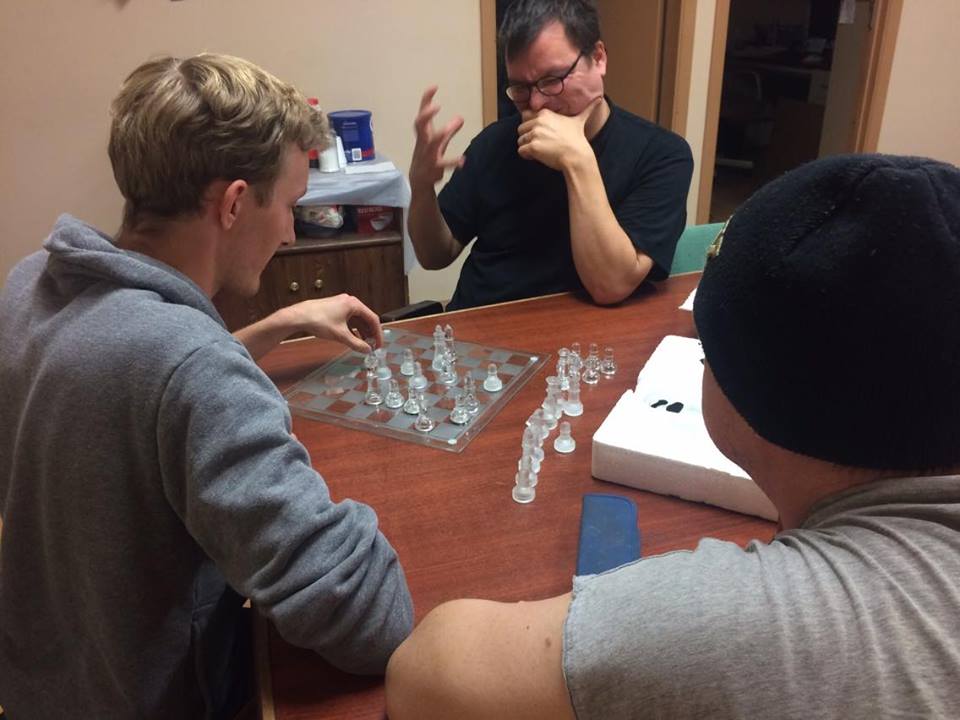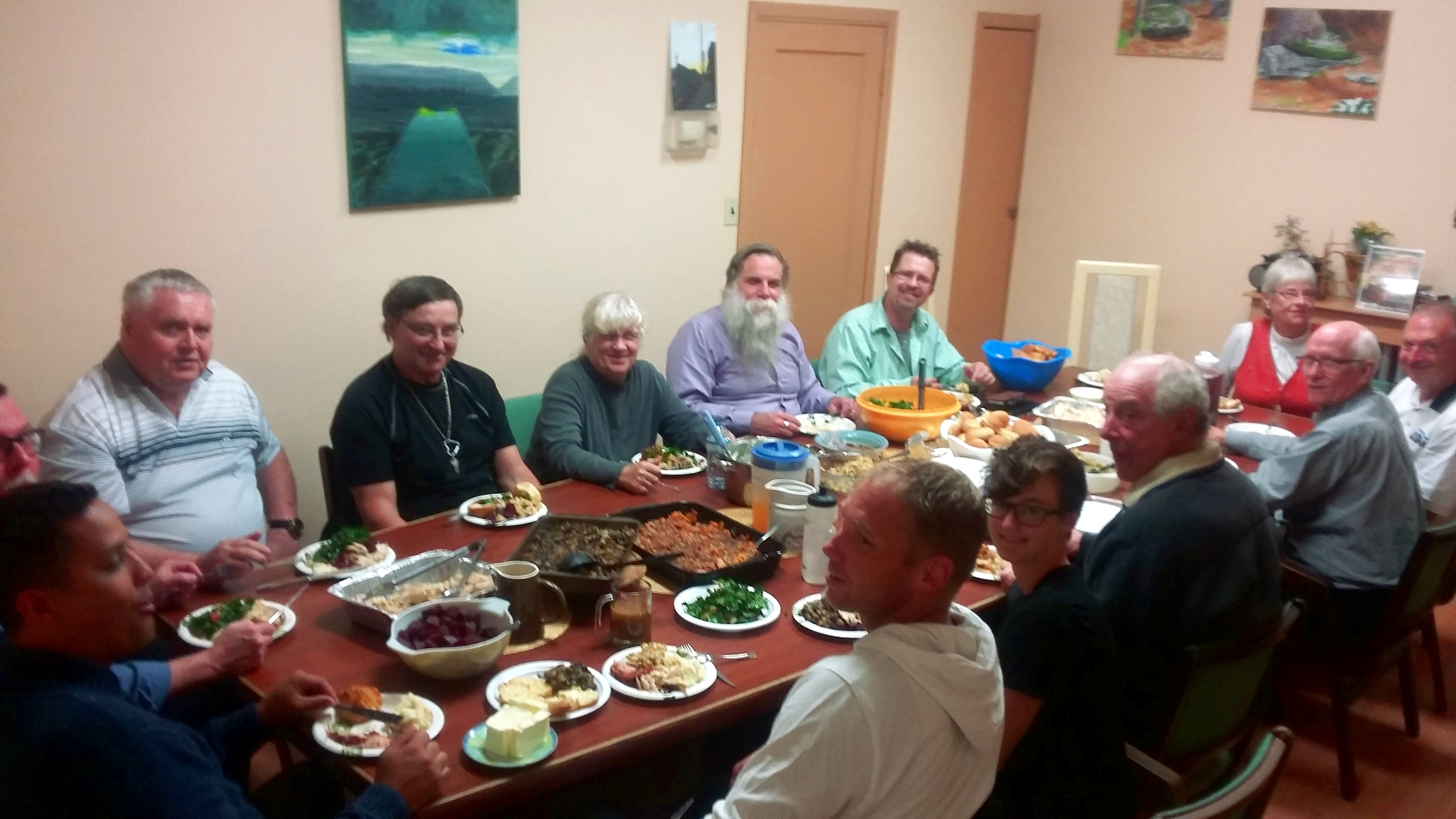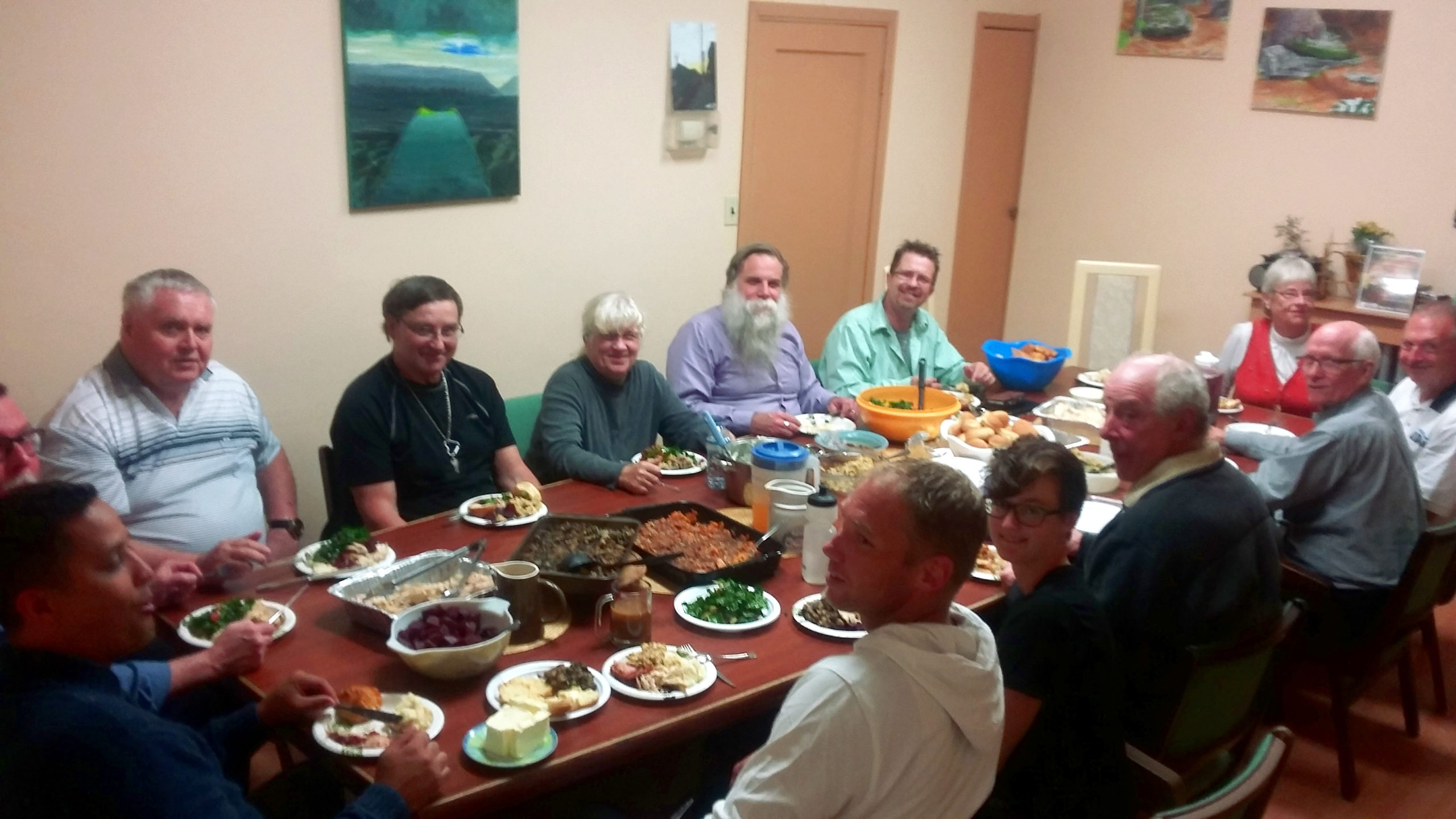
by Ted Mercer and Joan MacNeil
“Be kind to one another, tenderhearted, forgiving one another, as God in Christ forgave you.” (Ephesians 4:32)
Reintegrating ex-offenders is challenging, but fundamental for a more inclusive, safer community. “Get tough on crime” approaches are counterproductive; long sentences actually make it more likely that ex-offenders will re-offend. Providing reintegration support is more effective and less costly.
The Bridge from Prison to Community—founded by Christians of diverse denominations in 1988—provides services facilitating social reintegration of men post-incarceration in Hamilton and Halton County.
It provides transitional housing and practical and emotional support: in-house programs, referrals, group meetings and one-on-one coaching to improve life skills and access to training, education, housing and work opportunities. It also facilitates a family support group.
Tom came to The Bridge with “baggage”, unfortunately common among ex-offenders:
“I was born addicted to drugs, into a violent home with an alcoholic mom. I became a crown ward at four. Twenty-five foster homes and two group homes before I struck off on my own at 15. McDonald’s work didn’t cover the bills. I stole to survive, was jailed 20–25 times. The Bridge has been a shoulder to lean on—or cry on—and a place to vent. I haven’t offended since 2011, work most of the time. I’m doing alright.”

George had a loving family, but alcoholism led to DUI convictions and jail.
“In December 2011 I emerged with just the shirt on my back. I lived at Bridge House for two months. Although I now live on my own, I still attend several support meetings a week. I’ve been seeing my seven-year-old regularly, a real joy. Bridge staff recently helped me redo my résumé, and I’m starting a new job. The Bridge has been fundamental.”
Jack moved into The Bridge in summer 2016:
“The Bridge was a breath of fresh air … I was treated as a human being and not looked down on because I had a record … In jail I was constantly reminded I was ‘less than’. The Bridge has been a stepping stone to help me reach my goals. I’m now studying at Mohawk College in the Business and Finance program.”
Hundreds of our region’s ex-offenders finish sentences and are released, most without any support, every month. The Bridge’s part-time occupational therapist Stephanie sees about 120 ex-offenders a month and helps them navigate their way to reintegration. She notes, “Successes are possible, but we’ve got to increase the scope of our work, so more ex-offenders can turn their lives around.”
- Donate today—your donation is tax deductible.We are grateful for support from Niagara Diocese and other groups, but we urgently need more. With your support, we can teach ex-offenders how to find and keep stable housing, search for work effectively, survive on a shoestring, get treatment for mental health problems and avoid re-offending. A dollar a day can make a huge difference.
- Help us find housing for ex-offenders. If you or friends have a room or an apartment to rent, contact us.
- Help us find work for ex-offenders. Employers have been pleased with our “alumni.” Connect us to employers who might be receptive.
- Volunteer with the Bridge. Are you a friendly practical person? Can you spare a few hours monthly? If so, we need you.
- Talk with MPs, MPPs and Municipal Councillors. Urge them to increase support for reintegration services.
- Attend the Restorative Justice Conference. Saturday, April 1, 8:30 a.m. to 4 p.m. at Christ’s Church Cathedral, 252 James Street N., Hamilton.
To donate (canadahelps.org/en/charities/the-bridge-hamilton), volunteer or get more information, contact us at 905-522-0283, hamilton-bridge.ca or [email protected]
Ted Mercer is a Board member of The Bridge from Prison to Community. Joan MacNeil is a Community Advisor to The Bridge.


Viewing 2026 Through a Different Lens